Unlocking Equity: How Cash-Out Refinancing on Rental Properties Can Fund Your Next Investment
If you own rental or investment properties that have built up equity, you may be sitting on untapped potential. A cash-out refinance lets you unlock that equity and turn it into capital you can use, without selling the property. For real estate investors, this strategy can be a powerful way to fund the next purchase, renovate a unit, or simply strengthen your portfolio. In this investor's guide, we’ll break down how cash-out refinancing works for income properties and how it can help accelerate your growth.
What Is Cash-Out Refinancing for Investment Properties?

Cash-out refinancing allows you to replace your existing mortgage with a new, larger loan, and pocket the difference in cash. For investment property owners, this means you can access the equity you've built up over time and use it to fuel future opportunities. Unlike a home equity loan or line of credit, a cash-out refinance offers a single new mortgage with updated terms. It’s a common tool for investors looking to scale without selling off their assets, helping turn long-term appreciation into immediate, usable capital.
Why Investors Choose Cash-Out Refinance
For real estate investors, cash-out refinancing offers a unique opportunity to access capital without having to sell a performing asset. Instead of leaving equity tied up in a property, this strategy allows you to reinvest it into your portfolio, essentially putting your existing investment to work for your next one.
Here are a few reasons investors commonly choose a cash-out refinance:
- Leverage for Growth: Many investors use the funds to purchase additional rental properties, helping them scale faster than if they waited to save for a new down payment.
- Renovation and Value-Add Opportunities: Cash can be reinvested into property upgrades that increase rental income and property value, improving long-term returns.
- Debt Consolidation: Some investors use the proceeds to pay down higher-interest loans or business debts, simplifying finances and reducing monthly obligations.
- Liquidity and Flexibility: Having cash on hand can improve your ability to act quickly on time-sensitive deals, manage emergencies, or bridge gaps in cash flow.
Because it doesn’t require liquidating a property, a cash-out refinance is often seen as a smarter, tax-efficient way to grow, especially in a market where values have appreciated and capital is harder to come by. When used strategically, it becomes more than a loan—it’s a tool for momentum.
How to Know If You Qualify
Not every investment property will qualify for a cash-out refinance, but if you’ve built up equity and have steady rental income, you could be in a strong position to take advantage.
Lenders typically evaluate a few key factors to determine eligibility:
- Equity in the Property: Most lenders require that you retain at least 25–30% equity post-refinance, which typically translates to a loan-to-value (LTV) ratio of 70–75% or lower.
- Credit Score: A minimum credit score of 660 is generally needed, especially for non-owner-occupied properties.
- Rental Income and Cash Flow: Expect lenders to review your rent roll, lease terms, and debt-service coverage ratio (DSCR) to ensure your property can support the new loan.
- Property Type and Condition: Single-family rentals, multifamily buildings, and mixed-use investment properties may qualify, provided the property is in good condition and located in a marketable area.
- Ownership History: You’ll typically need to have owned the property for at least six months to be eligible for a cash-out refinance.
See If You Qualify with Trust Bridge
At Trust Bridge, we specialize in helping real estate investors unlock equity with straightforward, flexible cash-out refinancing options. Our investor-focused process is built to move quickly, so you can put your capital back to work without delay.
Here’s what you can expect from our cash-out refinance program (as of April 2025):
- Rates starting at 6.5%
- 30-year fixed, adjustable-rate mortgages (ARMs), and interest-only options
- No income verification required
- Minimum 660 credit score
- Funding available for single-family, multifamily, and mixed-use properties
Ready to explore your options? Apply now or connect with our lending team to see how much equity you can access. With Trust Bridge, the process is simple, and the potential is big.
Smart Ways to Use the Cash
Once you've completed a cash-out refinance, the real advantage is in how you put that money to work. For real estate investors, the key is using those funds strategically to strengthen or expand your portfolio, not just padding your bank account.
Here are some of the most common and effective ways investors use their cash:
- Purchase Another Rental Property
Many investors use the proceeds as a down payment on their next investment. This allows you to scale your portfolio faster without dipping into personal savings or waiting to build new capital. - Fund Renovations to Increase Rental Income
Reinvesting in your current properties—whether through cosmetic upgrades, system improvements, or adding amenities—can boost rental value and long-term appreciation. Even minor updates can lead to higher rents and better tenants. - Pay Down Higher-Interest Debt or Build Reserves
If you’re carrying expensive business or credit card debt, using your refinance proceeds to pay it down can lower your monthly expenses. Some investors also use a portion of the cash to build a reserve fund for unexpected vacancies, repairs, or other expenses.
Whatever route you choose, the goal is the same: use your equity to create more income, flexibility, and financial leverage. With the right strategy, a cash-out refinance isn’t just a loan—it’s a launchpad.
Before you move forward with a cash-out refinance, however, it’s important to think beyond the immediate benefits and consider the long-term impact on your investment strategy. While this tool can open up new opportunities, it also comes with risks if not used wisely. Here are a few common mistakes investors should avoid when tapping into their equity:
3 Common Mistakes to Avoid when Leveraging a Cash-Out Refinance Loan
Mistake #1 - Overleveraging Your Portfolio
One of the most significant risks of a cash-out refinance is overleveraging your portfolio. While tapping into your home equity can provide funding for additional investments, borrowing too much can put your financial stability at risk. Overleveraging occurs when your debt obligations outweigh the income generated by your investments, leaving little room for unexpected expenses or market downturns. This can lead to cash flow issues, forcing you to make difficult financial decisions or even sell assets under unfavorable conditions. Before proceeding, it’s crucial to carefully assess your debt-to-income ratio and ensure you have a solid plan for managing the increased debt responsibly.
Mistake #2 - Not Planning for Rate Adjustments or Future Cash Flow
Failing to account for potential rate adjustments or future changes in cash flow can significantly impact your financial stability. Variable interest rates, for example, can rise unexpectedly, increasing the cost of your debt and putting additional strain on your budget. Similarly, unexpected changes in cash flow, such as a decrease in income or an increase in expenses, can make it challenging to meet financial obligations. To avoid this mistake, it’s important to stress-test your financial plan by considering different scenarios, such as rising interest rates or temporary income disruptions. Building an emergency fund and avoiding over-reliance on variable-rate debt can provide a safety net and help you stay prepared for the unexpected.
Mistake #3 - Ignoring Local Market Conditions
Failing to account for local market conditions can lead to poor financial decisions, particularly when it comes to investments or real estate. Different regions can experience varying economic trends, fluctuations in property values, and changes in employment rates, all of which affect financial outcomes. For instance, purchasing property without understanding the local housing demand or job market stability could result in overpaying or struggling to rent or sell. To avoid this mistake, conduct thorough research on regional market trends, consult local experts, and align your decisions with the specific economic environment of the area. Staying informed about local conditions will help you make smarter, more informed financial choices.
Conclusion
A cash-out refinance can be one of the most effective ways to scale your real estate portfolio, without selling off assets you’ve worked hard to build. By unlocking the equity in your rental or investment property, you can access capital to purchase new properties, make value-boosting renovations, or strengthen your financial position.
At Trust Bridge, we’re a trusted source offunding for real estate investors in Connecticut and across the U.S. Whether you’re a first-time investor or growing a multi-property portfolio, our team understands the fast-paced world of real estate and delivers flexible lending solutions that meet your goals.
If you’re exploring a cash-out refinance investment property strategy, we’re here to help you run the numbers, explore your options, and move forward with confidence. Apply now or reach out today to see how much capital your equity could unlock.
Frequently Asked Questions
How do I know if a cash-out refinance is right for me?
If you’re looking to leverage the equity in your investment property for other opportunities, such as acquiring additional properties, renovations, or consolidating debt, a cash-out refinance could be a beneficial strategy. Our team can help you analyze your goals and financial situation to determine the best path forward.
Are there risks associated with cash-out refinancing?
While a cash-out refinance can provide flexibility and access to funds, it’s essential to carefully assess your ability to manage the new loan terms. Taking on higher monthly payments or extending your loan term may impact your long-term financial strategy.
How much equity can I access with a cash-out refinance?
The amount of equity you can access depends on various factors, including your property’s appraised value, the balance of your current loan, and lender-specific guidelines. Contact us today to explore your options and get a personalized estimate.
How long does the process take?
The timeline for a cash-out refinance varies but typically takes a few weeks from application to closing, depending on factors like appraisals and documentation review. Our team is committed to making the process as efficient as possible.
What states does Trust Bridge provide loans for?
Trust Bridge is based in Connecticut but proudly offers cash-out refinancing loans nationwide. No matter where you are located, our team is ready to assist you with your refinancing needs.






